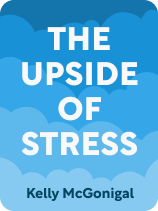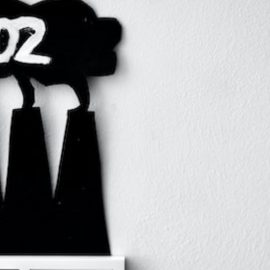

This article is an excerpt from the Shortform book guide to "The Upside of Stress" by Kelly McGonigal. Shortform has the world's best summaries and analyses of books you should be reading.
Like this article? Sign up for a free trial here.
Do you try to avoid stress at all costs? How can embracing stress help you live a happier and more fulfilling life?
According to Kelly McGonigal, the author of The Upside of Stress, avoiding stress is futile and harmful. She claims that to resist stress is to resist living a full life. So, it’s important to embrace the benefits of stress in order to live meaningfully.
Here’s how avoiding stress makes you miserable and why a moderately stressful life leads to happiness and meaning.
Avoiding Stress Is Futile and Harmful
By trying to avoid stress, McGonigal explains that you ironically create more stress. This is because avoiding things that stress you out reinforces your stress about those things. Additionally, avoiding what causes you stress can cause new stresses. For example, you might feel stressed about not being a good enough partner, so you avoid romantic relationships. Because you avoid dating anyone, you isolate yourself and reinforce your fear that you’re not good at relationships. Additionally, you may deprive yourself of the support that a loving partner would offer, or you might feel stressed about the meaningful experiences you’re missing out on by not having a partner.
Research shows the physical consequences of trying to avoid stress can include depression, impulsiveness, and a greater likelihood of negative life events such as losing your job or getting a divorce.
Avoiding stress can also lead to substance abuse. In order to suppress unpleasant feelings associated with stress, you might excessively use drugs and alcohol. For example, rather than viewing your responsibilities as challenges that produce meaning in your life, you feel overwhelmed and try to suppress this feeling by drinking alcohol. Heavy drinking leads to health issues like liver damage and negatively affects personal relationships—which also leads to more stress.
| In order to stop reinforcing your stress, risking creating new stresses, and harming yourself, consider confronting your fears in a healthy way through exposure therapy. Similar in concept to embracing your stress, as McGonigal suggests, this method proposes gradual exposure to overcome your source of stress. It consists of multiple strategies, including different forms of exposure (such as imagining the source of stress, virtual reality, or facing the stress in real life) as well as different paces—you may first be exposed to a mild form of your stress and then progress to more difficult versions or vice versa. |
Pursuing a Meaningful Life Is Stressful
McGonigal explains that stress is paradoxically associated with happiness and meaning. For example, countries where people report more stress also have a higher GDP, more happiness, and greater satisfaction with life.
Why do we find meaning in the same places we find stress? McGonigal claims that if you pursue ambitious goals and take on significant responsibility, you’re more likely to be stressed—but you’re also more likely to be happy, find meaning in your life, and live longer. For example, you might say that your kids are your greatest source of daily stress. You want them to be safe, successful, and happy, but all of these things are uncertain and cause you to worry. However, your kids might also be your greatest source of happiness. Their silliness and love brighten your day, and caring for them gives you a sense of purpose.
McGonigal adds a caveat to this argument, explaining that some studies show stress is also associated with depression and mortality. For example, a study measuring the effect of stress on men’s mortality over 50 years found that men who reported the most daily hassles were far more likely to die. However, the measurement that tracked daily hassles was highly subjective: Participants were presented with a list of everyday responsibilities and were asked to rate whether they considered these things a hassle or uplifting. Those who rated daily activities as a hassle were more likely to die. McGonigal argues that because the list of everyday activities consisted of things that are inherent in daily life, this method of measurement actually demonstrated that the participants’ mindsets—that is, their perceptions or beliefs about their daily activities—determined whether daily hassles were deadly or not.

———End of Preview———
Like what you just read? Read the rest of the world's best book summary and analysis of Kelly McGonigal's "The Upside of Stress" at Shortform.
Here's what you'll find in our full The Upside of Stress summary:
- Why stress is an ally that should be embraced
- How stress can lead to enhanced health, greater success, and a more meaningful life
- How to change your mindset about stress to receive its benefits






